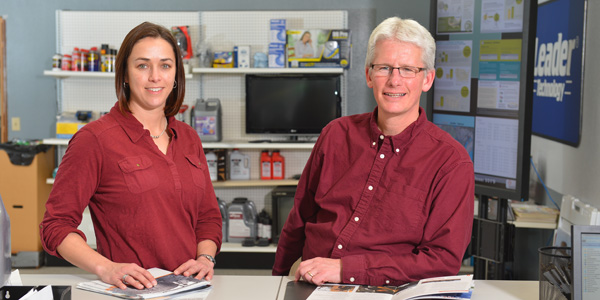
Cooperative By Nature And By Trade
While cooperatives are the focus of economist Keri Jacobs’s work, the word “cooperative” also describes the nature of the role she plays with the Iowa Institute for Cooperatives (IIC).
The institute is a trade association which provides information, education and training, technical assistance and legislative support to co-op members. As an Iowa State assistant professor and extension economist, Jacobs supports IIC with the latest research on agricultural co-ops, agribusiness and agricultural economics and plays a key role in providing professional development to volunteer board members who lead Iowa’s 59 agricultural co-ops.
David Holm, executive director of IIC, works with Jacobs. He says their partnership “couldn’t be created any better.”
With IIC’s ear to the ground in its daily work with statewide co-ops, Holm is able to provide Jacobs with a sense of the issues its members really want to know about. This, in turn, helps guide her research in ways she says will be “truly important to stakeholders.”
“The expertise of Dave and the members of IIC adds value, helping me to better understand the latest trends and key issues in agricultural co-ops,” Jacobs says.
Access to on-the-ground information also helps Jacobs inject current industry issues into her coursework on co-ops at ISU. With the most up-to-date knowledge, her students become attractive prospects for employment.
Cooperatives are governed by volunteer boards made up of individual members, many of whom are serving in that structure for the first time. Holm recruits members and brings them together for professional development sessions, while Jacobs provides them with the training and support they need through a comprehensive co-op director’s certification program.
It’s the kind of preparation that Holm says is “critical” to the success of co-ops.
“We need board members to offer direction, management and strategy. If there’s no place for them to develop those skills it’s hard to succeed,” he says.
But the training is not only a positive for the co-op. Holm says it also “benefits the entire rural community,” as members tend to move on to other leadership positions.
For Jacob’s part in facilitating that, he says co-op members are impressed. “Keri is extremely insightful, with the ability to look at the issues in a deeper way. It’s a value to have her independent approach and analysis.”



